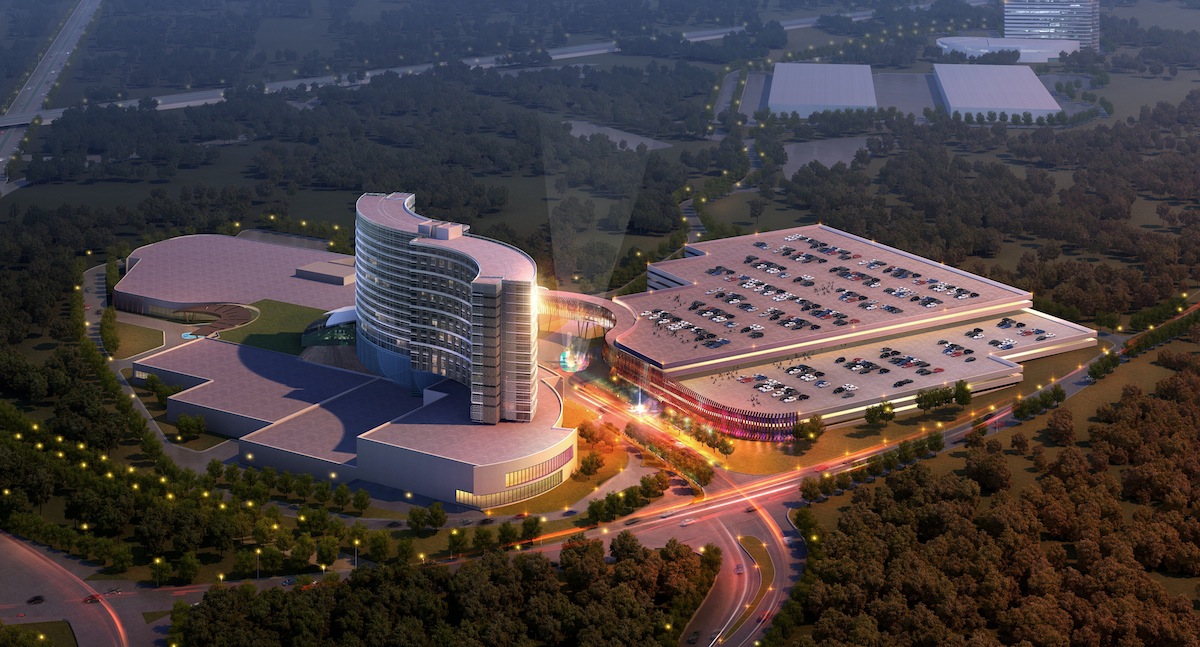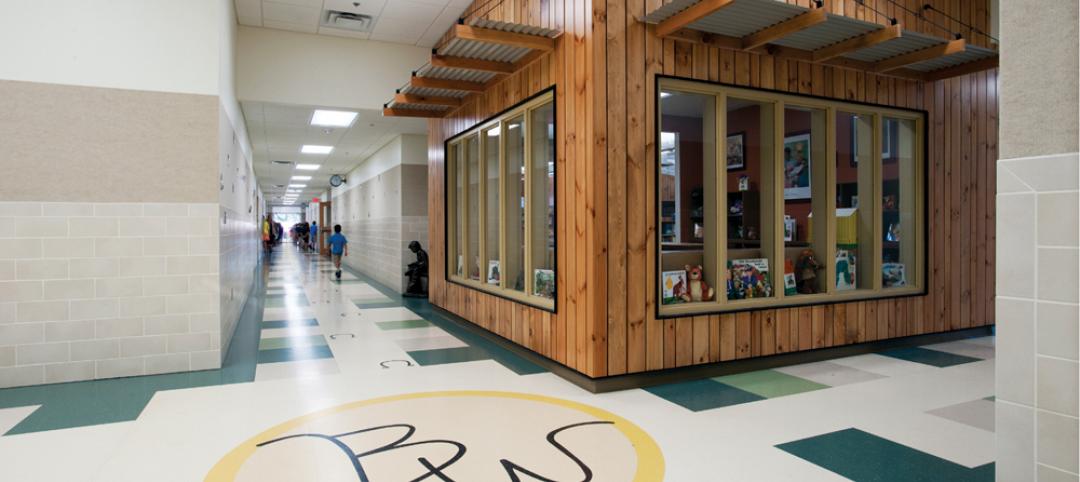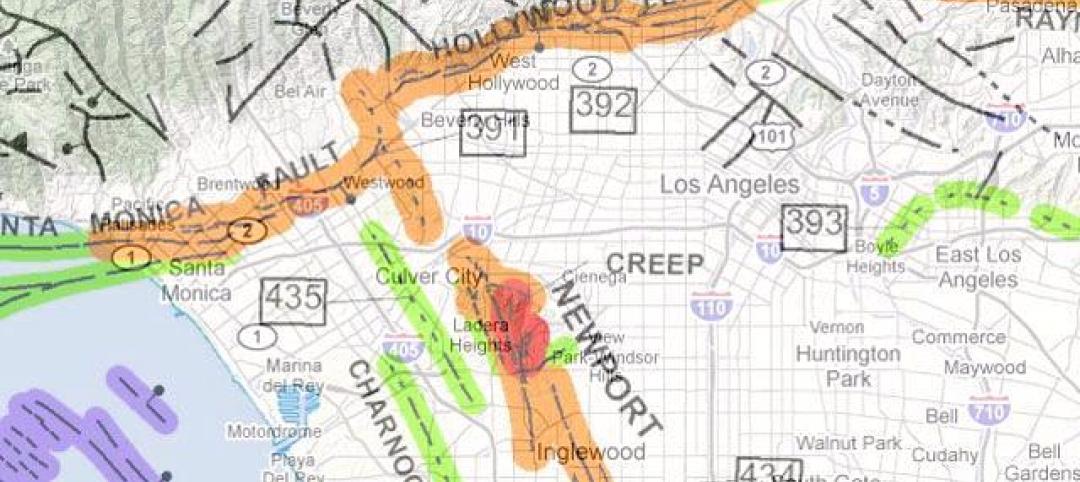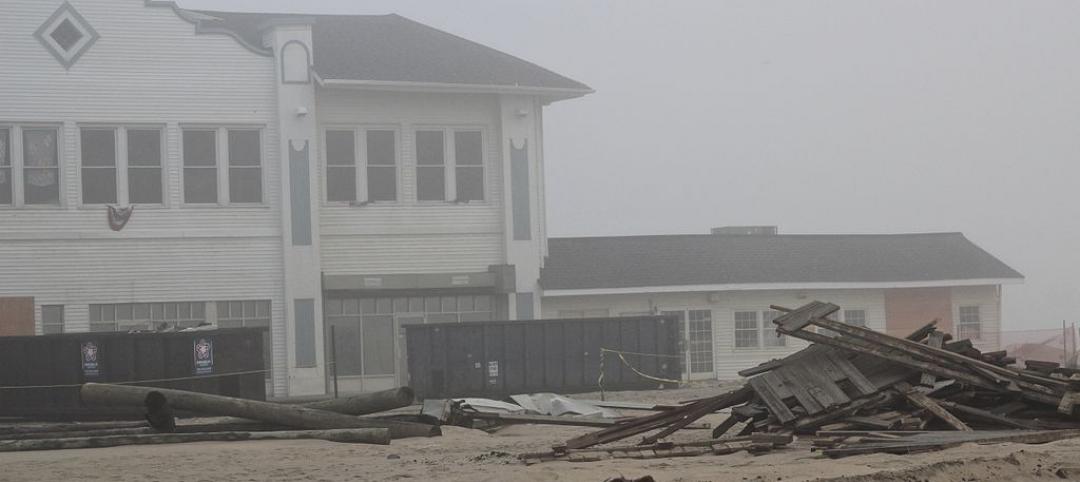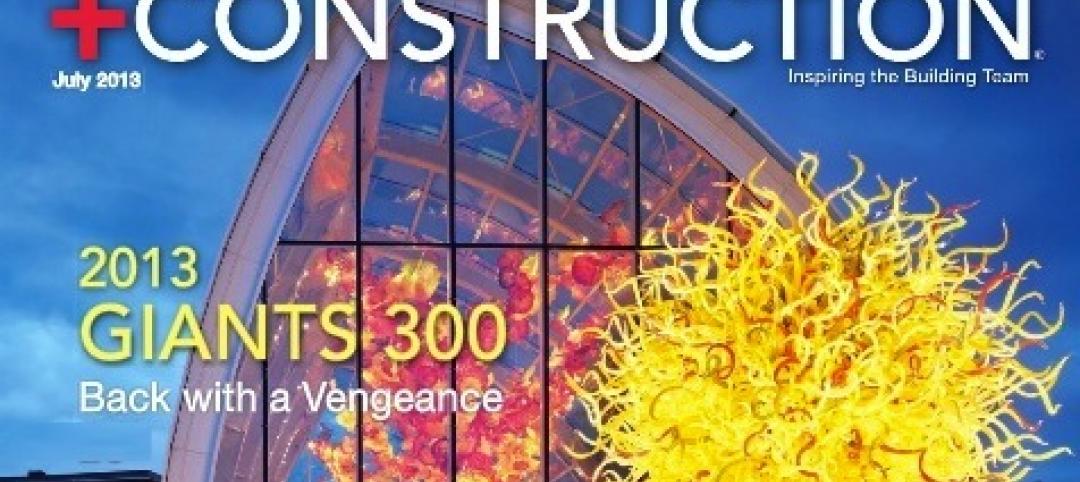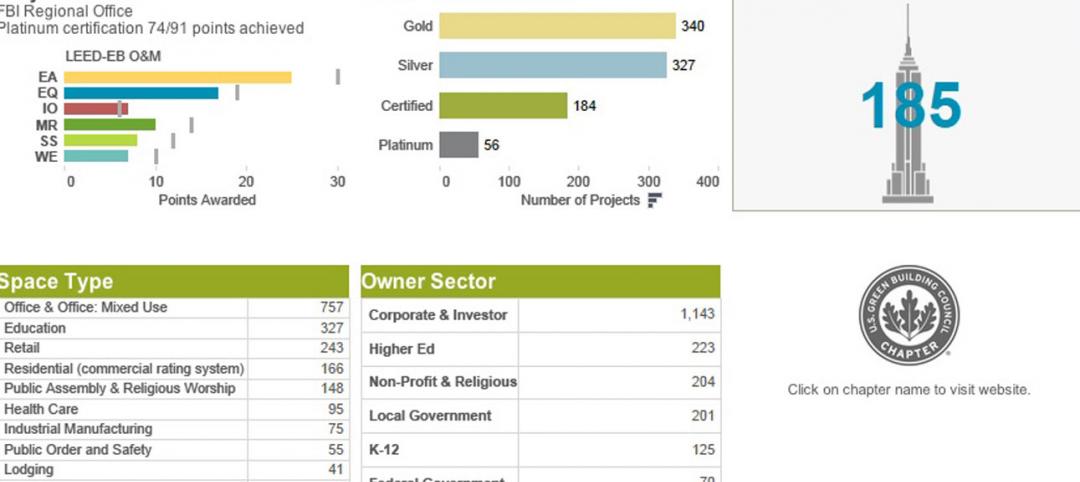The Mashpee Wampanoag Tribe has officially been deemed a sovereign territory by the United States government, according to Boston’s WCVB. With the approval, the group can move along with plans to build and operate a tribal casino.
The $500 million First Light Resort & Casino will be located in Taunton, Mass., a town about 40 miles south of Boston and nearly 20 miles east of Providence, R.I.
The tribe was awarded 321 acres of land in 2007, with 151 in Taunton and 170 in Mashpee, Mass., which is an hour away.
The plan for a casino has been in motion since 2012. Designed by JCJ Architecure, First Light will feature a 150,000-sf casino (with 3,000 slot machines, 150 table games, and 40 poker tables), a buffet, a steakhouse, a food court, 10 retail stores, and more than 4,500 parking spaces between a garage and lot.
The hotel portion will have 600 rooms, a 15,000-sf event center, and a 25,000-sf indoor and outdoor water park. Construction on the resort can start as early as next spring.
The tribe says that the casino and resort will generate 1,000 union construction job and $140 million in direct and indirect economic benefit to Taunton and the region annually.
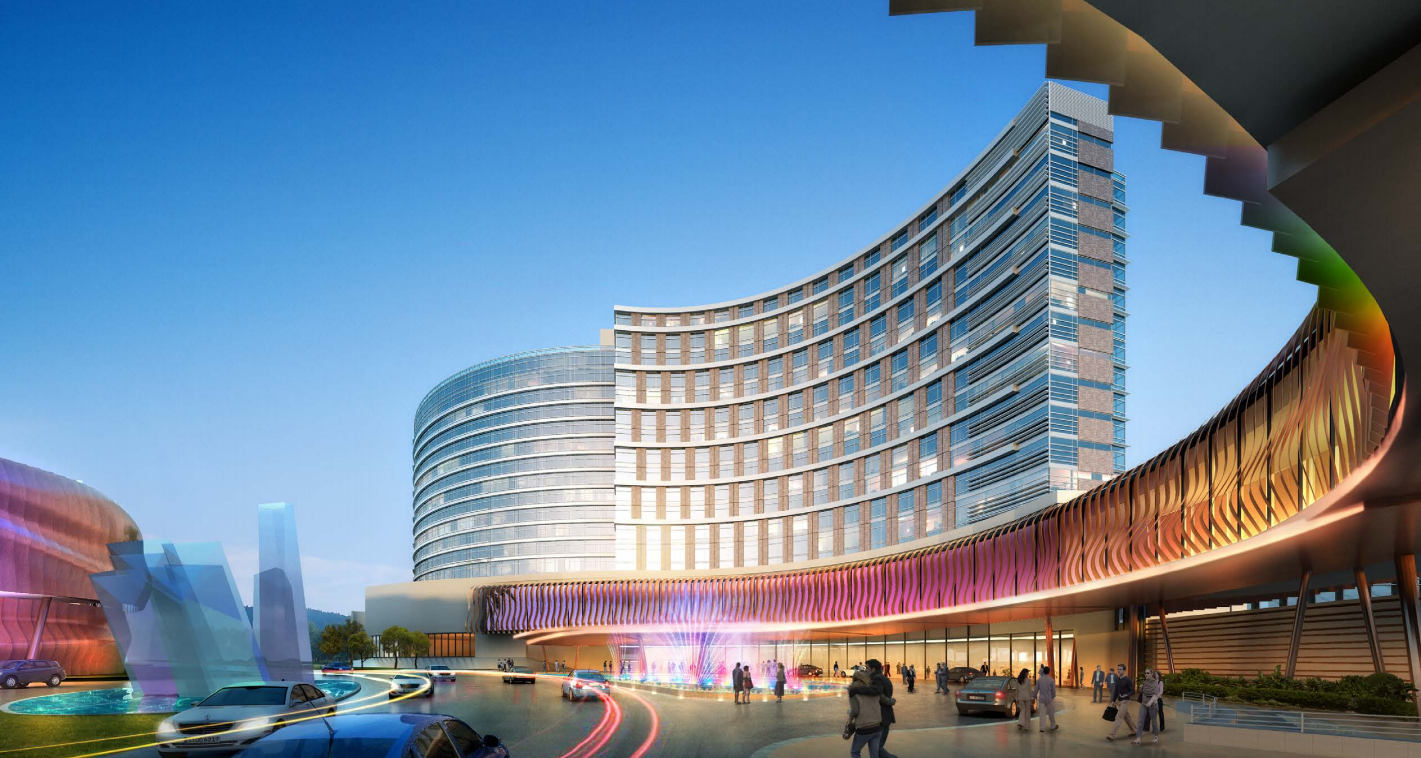
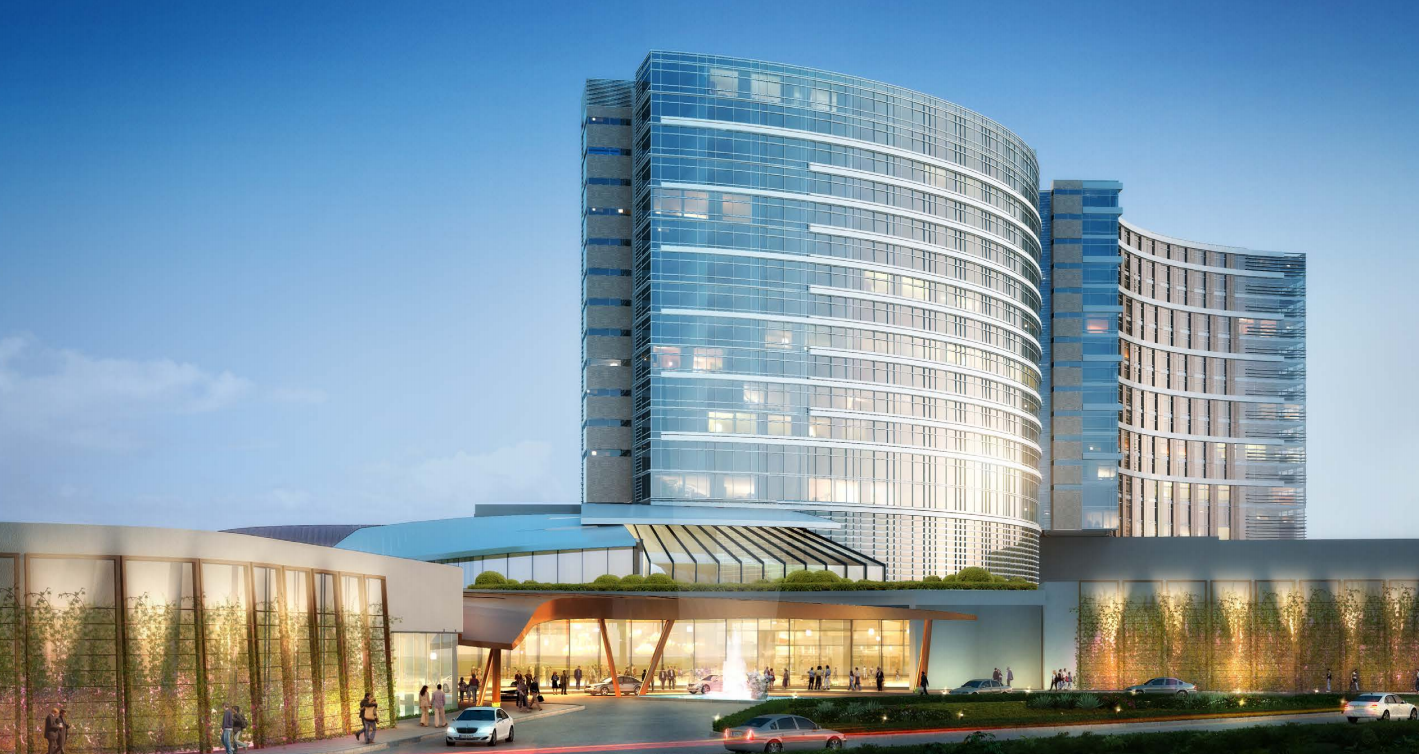
Related Stories
| Jul 2, 2014
Emerging trends in commercial flooring
Rectangular tiles, digital graphic applications, the resurgence of terrazzo, and product transparency headline today’s commercial flooring trends.
| Jun 18, 2014
Arup uses 3D printing to fabricate one-of-a-kind structural steel components
The firm's research shows that 3D printing has the potential to reduce costs, cut waste, and slash the carbon footprint of the construction sector.
| Jun 12, 2014
Austrian university develops 'inflatable' concrete dome method
Constructing a concrete dome is a costly process, but this may change soon. A team from the Vienna University of Technology has developed a method that allows concrete domes to form with the use of air and steel cables instead of expensive, timber supporting structures.
| May 29, 2014
7 cost-effective ways to make U.S. infrastructure more resilient
Moving critical elements to higher ground and designing for longer lifespans are just some of the ways cities and governments can make infrastructure more resilient to natural disasters and climate change, writes Richard Cavallaro, President of Skanska USA Civil.
| May 20, 2014
Kinetic Architecture: New book explores innovations in active façades
The book, co-authored by Arup's Russell Fortmeyer, illustrates the various ways architects, consultants, and engineers approach energy and comfort by manipulating air, water, and light through the layers of passive and active building envelope systems.
| May 19, 2014
What can architects learn from nature’s 3.8 billion years of experience?
In a new report, HOK and Biomimicry 3.8 partnered to study how lessons from the temperate broadleaf forest biome, which houses many of the world’s largest population centers, can inform the design of the built environment.
| May 13, 2014
19 industry groups team to promote resilient planning and building materials
The industry associations, with more than 700,000 members generating almost $1 trillion in GDP, have issued a joint statement on resilience, pushing design and building solutions for disaster mitigation.
| May 11, 2014
Final call for entries: 2014 Giants 300 survey
BD+C's 2014 Giants 300 survey forms are due Wednesday, May 21. Survey results will be published in our July 2014 issue. The annual Giants 300 Report ranks the top AEC firms in commercial construction, by revenue.
| May 9, 2014
It's official: Norman Foster-designed Harmon hotel and casino to be razed due to structural issues
Construction of the Las Vegas tower was halted in 2008 after experts discovered faulty steel beams in the structure. Now its owner, MGM, has received permission to demolish the building.
| Apr 29, 2014
USGBC launches real-time green building data dashboard
The online data visualization resource highlights green building data for each state and Washington, D.C.


